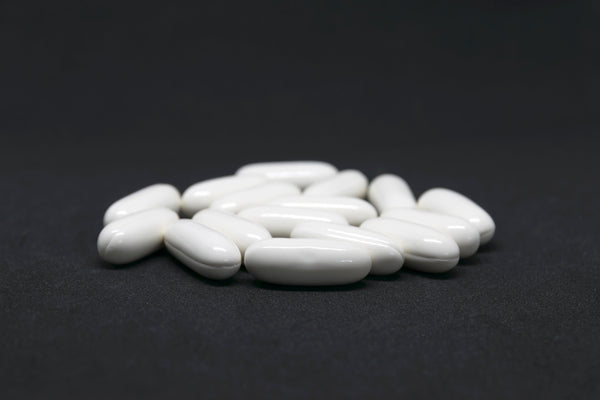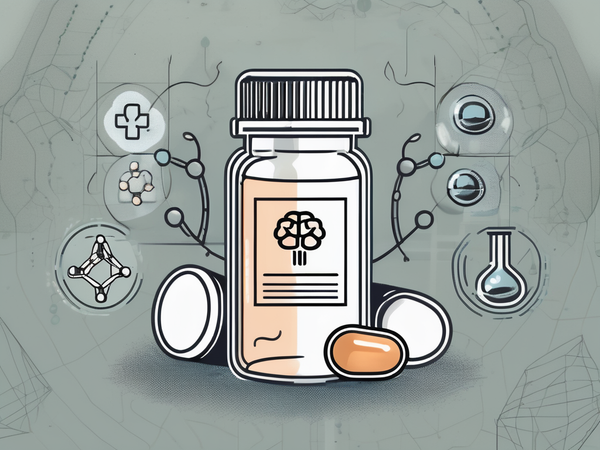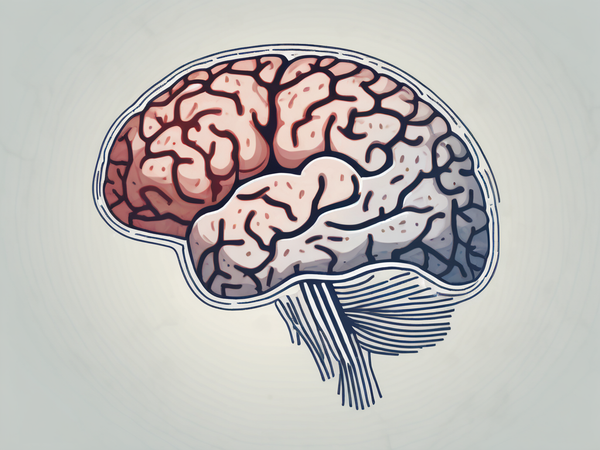We’ve all felt those butterflies in the stomach before a presentation or first date. Ever wondered why it happens? Here’s a little hint before we dive in: It has a lot to do with your second brain. Scroll down to learn more about your gut and how stress can interfere with its normal functioning.
Your Second Brain

All humans have a second brain, and nobody told you about it.
The digestive system's essential activities are partially carried out independently by a unique neurological system known as the enteric nervous system. It is a network of neurons that can function without any cues from the brain. The most common functions of the ENS include identifying nutrients and optimizing their absorption, immune regulation, the secretion of digestive fluids, gut motility, and more.
Since the ENS can carry out most of the digestive functions mostly without the involvement of your big brain, it is often referred to as the second brain. Present on the lining of the GI tract, the ENS is a vast network of millions of neurons.
Your ENS system can interact with your brain and vice versa via the vagus nerve. The vagus nerve carries messages from the gut to the brain to initiate necessary actions. So does the brain. For example, your food cravings are a signal from your gut microbes that you need a specific nutrient present in that food.
Emotions and Gut Health
Owing to the gut-brain axis, your emotions—fear, anger, nervousness, and happiness—can control the activities in the gut. Similarly, gut microbes can also make you feel different kinds of emotions. The interaction flows both ways.
An investigation conducted by the Harvard T.H. Chan School of Public Health revealed that -
- Individuals with suppressed emotions don’t have a diverse gut microbiota.
- Certain bacteria, like Firmicutes bacterium CAG 94 and Ruminococcaceae bacterium D16, were present in greater numbers among individuals who were usually happy and positive. Their numbers were lower among individuals with negative emotions.
- Negative emotions lower the efficiency of many metabolic activities.
Negative emotions or too much stress, anxiety, and depression can leave you with a less diverse gut and a slower metabolic process.
Effect of Stress on Digestion
So now do you know why you get butterflies in your stomach? It’s because your emotions are able to influence your digestive system. Let’s learn a little more about the effect of stress on digestion to get a closer look.
The Digestive System Shuts Down
Your brain does all it can to make sure you are surviving. To keep you alive under high-stress conditions, the brain switches to fight or flight mode. In this situation, your brain prioritizes things like using energy from stored fat reserves, faster blood circulation to limbs, sharpening the five senses, and increasing alertness. Other processes, like digestion, are not important for survival at the moment and are hence shut down.
It also increases the circulation of blood to the brain, increasing alertness and faster actions. So the blood flow to your digestive system is compromised.
All of these changes happen within seconds, accompanied by the secretion of adrenaline and cortisol. Adrenaline brings about all the changes we talked about, and cortisol levels remain high until the threat is no longer around.
The unfortunate part is that your brain tends to overreact. It’ll be on guard and switch to flight or fight mode instantly, even for minor stressors like a quarrel with your mom.
Think about all the time you’ve spent worrying about countless things. Those are the times when your body has compromised your digestive processes. Being stressed every now and then will weaken your digestion.
Impaired Blood Flow to the Gut
When your body switches to fight or flight mode, it reduces blood flow to other regions of the body and increases blood flow to the limbs, brain, and other necessary organs. Reduced blood flow to the gut slows down metabolic processes for which oxygen is needed.
Irritable Bowel Syndrome
Stress responses can also hamper the peristaltic movement of the gastrointestinal tract. It is an action of rhythmic relaxation and contraction that is responsible for pushing food forward through the GI tract. If this movement picks up an unusual speed, it causes diarrhea. Slow bowel movements, on the other hand, can cause constipation.
Such unusual bowel movements are characteristics of IBS. It is a long-term condition that can happen to kids as well as seniors. The prevalence of IBS is higher in people aged 35 and older and in females.
It is caused by multiple reasons like dysbiosis, infection, food sensitivity, and, most importantly, stress. To date, there have been ample studies proving a connection between chronic stress and IBS.
Dysbiosis
Your gut houses trillions of bacteria, viruses, and fungi. These good bacteria rely on your food for survival, and you rely on them for digesting complex foods, immunity, and increased metabolism.
One of the most crucial aspects of this symbiotic relationship is the diversity and balanced composition of the gut microbiota. We need a variety of bacteria in this community, but we also don’t want one kind of bacteria to overpower the other. It is a very delicate balance that needs to be maintained by having a good number of probiotics ( good gut bacteria ) and prebiotics (food for the bacteria) via food or supplements and by managing your stress.
It has been observed that stress can affect your gut microbiota composition, thus leading to various digestive and immune problems. For example, getting stress signals from the brain via the vagus nerve can lead to the shedding of Lactobacilli and Bifidobacteria. This hampers the balance achieved in the gut bacteria community, causing a condition known as dysbiosis.
How to Improve Gut Health when you are Constantly Stressed?
The vagus nerve is the highway through which your brain and the second brain communicate. Hence, the vagus nerve is the key. If you learn how to stimulate your vagus nerve, you can keep your gut and mind healthy.
Deep Breathing & Yoga
Slow and deep breathing helps you relax and reduce the stress signals coming from the brain to the vagus nerve. Take a nice deep breath and inflate your stomach while you do so. Hold it for a few seconds and give a long exhale, sinking your stomach close to your back. Do this every day to effectively manage your stress.
Have your Prebiotics & Probiotics
We’ve said this before, but we’ll repeat it because it is the best and most effective way to restore your gut health. Prebiotic fibers are food for the good gut bacteria residing inside your gut. You can get prebiotic fibers from apples, bananas, barley, and Asparagus. Probiotics contain strains of several bacteria that increase diversity and restore balance in your gut. Some good sources of probiotics are yogurt, tempeh, cheese, and kimchi.
Chamomile and Saffron
Since ancient times, saffron and chamomile have been employed as herbal mind-relaxing medicines. A study conducted to test their efficacy demonstrated that using both plants simultaneously as an additional treatment improved the management of depression. A concoction prepared using these two herbs can help you manage anxiety.
Leverage the Power of Natural Supplements
Get your hands on supplements for anxiety and gut health to stop the stress signals from the brain to the gut and vice versa. For gut health, as mentioned before, nothing works better than probiotics and prebiotic fibers. And for anxiety, look for natural supplements with a non-drowsy effect. Mind-relaxing medicine often has sedative effects and can make you sleepy during the day. There are many formulas that calm your nerves without making you sleepy. Also, look for ingredients like chamomile, saffron, lemon balm, and magnesium that are well-known to help relieve anxiety & nervousness.
Massage
Massage therapy is a relaxing experience for your mind and body. If you can get a professional to massage your tissues, it can help you improve the health of your muscles, relieve stress, and eventually improve your gut health. Studies have shown that massaging can help reduce cortisol levels and increase dopamine and serotonin levels, thus elevating stress & prompting happiness.
Wrapping Up
You and your gut have a common enemy, and that is stress. Although we always say that you should not take on so much stress, we are aware that it’s not easy. You are shouldering so many responsibilities—work, parenting, career, societal pressure—that it is quite obvious you are burdened with stress. So, do what you can to reduce your stress. Try meditation, start talking about your worries, pick up a hobby, get your vitamins for nervousness, and allow yourself plenty of time to rest. Do what feels right for you and take it one step at a time. If you can manage your stress, you’ll be able to keep your gut health in check, boost immunity, prevent cognitive illnesses, sleep better, and keep your heart happy. There's only one mantra to follow: a happy gut starts with a happy you.
References:
https://pubmed.ncbi.nlm.nih.gov/16162447/
https://www.ncbi.nlm.nih.gov/pmc/articles/PMC5859128/
https://www.ncbi.nlm.nih.gov/pmc/articles/PMC5046167/
https://www.ncbi.nlm.nih.gov/pmc/articles/PMC3039211/%5C



























 DOWNLOAD NOW
DOWNLOAD NOW
